Project News
Peripheral Visions: European Soldiers and Cultural Encounters in the Long Nineteenth Century
Final Conference for the HERA project: "Making War, Mapping Europe: Militarised Cultural Encounters, 1792-1920"
Trinity College Dublin
June 2-4, 2016
Summary:
From the 18th to the early 20th centuries, European powers mounted military expeditions to the eastern periphery of the continent and to the edge of what they considered to be the 'civilized' world. From the Napoleonic expeditions to Italy, Egypt and Russia to the British conquest of Egypt in the 1880s, and from the German Empire's involvement with the Ottoman Empire to the British and French campaigns in Macedonia and Palestine during the First World War, European soldiers ventured into exotic lands. In so doing, they experienced the unknown while also confronting their own cultural pre-conceptions about the territories they visited and the people against or amongst whom they fought. Often the places they invested were redolent with European cultural significance (Rome, Egypt, Jerusalem), a significance belied by the modern realities of those same sites. In making war, they mapped a Europe of their own imagining. Yet because they engaged in the overt violence of war and the more covert violence of occupation, their encounters were not those of tourists, traders or travel writers, though they certainly contained elements of all three. There was a military specificity to what they saw, to whom they encountered and how they did so. The encounters were important for the soldiers themselves, for their home countries and for the societies to which they went. Indeed, in terms of numbers and influence, these militarized encounters were one of the most important ways in which Europeans engaged with the eastern and southern periphery of their continent in the course of the long 19th century.
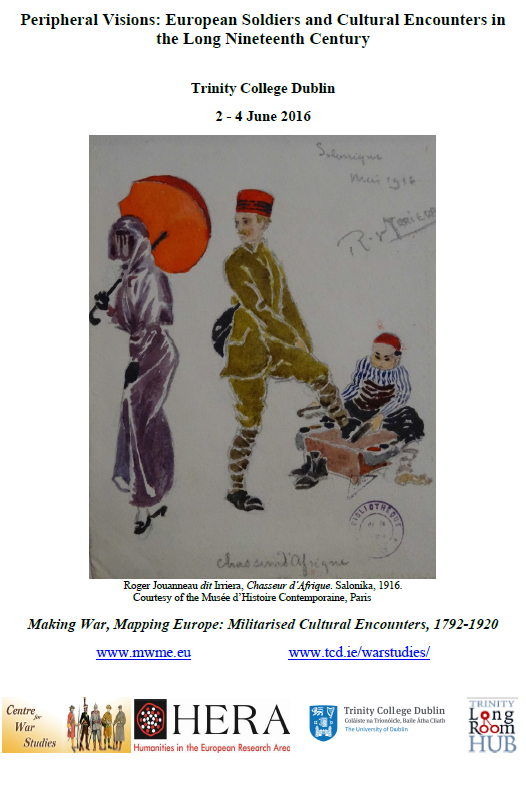
The conference volume Peripheral Visions: European Military Expeditions as Cultural Encounters in the Long 19th Century, edited by Joseph Clarke and John Horne, is expected to be released in 2017 and contains the following articles from MWME members:
- Joseph Clarke and John Horne, ‘Introduction’
- Joseph Clarke, ‘Soldiers and the Sacred: British and French encounters with alien religious cultures during the Revolutionary and Napoleonic Wars’
- Sheona Davies, 'Marsh and Forest': Barbarism and Civilisation in the Memoirs of the 1812 Campaign'
- Paul Fox, ‘Fighting a just war: photography, architecture, and the language of damage in the Egyptian Sudan, 1884-98’
- John Horne, ‘‘A “Civilizing Work”? The French Army in Macedonia, 1915-1918’
- Leighton James, 'Violence and the Barbaric East: Germans and the Russian Campaign of 1812'
- Catriona Kennedy, ‘Military ways of seeing: British soldiers’ sketches of Egypt, 1801’
- Mahon Murphy, ‘The ‘Hole-y City’: British Soldiers’ Perceptions of Jerusalem During its Occupation, 1917-1920’
- Fergus Robson, ‘Bearers and Begetters of the Torch of Civilisation: French Soldiers’ Evolving Conception of the Self and Other through Cultural Encounters’
- Oliver Stein, Archaeology and Monument Protection in War: The Collaboration between the German Army and Researchers in the Ottoman Empire, 1914-1918
Winter semester 2016/17
Research Colloquium for the Department of Modern History
Fachbereich Geschichts- und Kulturwissenschaften
Friedrich-Meinicke-Institut
Prof. Dr. Oliver Janz
at the Freie Universität Berlin
Koserstr. 20, 14195 Berlin
Room A.320
6-8 pm
Dr Franziska Heimburger (Paris-Sorbonne)
HERA Public Lecture:
Mésentente cordiale – Languages in the Allied coalition on the Western Front
Forschungskolloquium zur Neueren Geschichte
Freie Universität Berlin (Prof. Dr. Oliver Janz)
May 24, 2016 6-8 pm
Summary:
Previous scholarship on the Allied coalition during the First World war has tended to stress the misunderstandings and distrust between the individuals representing their countries at high command level. There is an unexplained tension between this mésentente and the durable nature of the coalition and eventual victory of the French, British and Americans on the Western Front which leaves the lower echelons under-explored. By dialectically crossing communication practice and military logistics we can write a history which tells us both how these exchanges were possible and to what extent they contributed to the Allies’ victory. Official and private archival material enables us both to read traces of language from the perspective of the history of international exchanges and also to understand choices in military logistics from the point of view of interpreting and translation studies. France and Britain had very different military language strategies throughout the 19th century, with the French developing a specialised corps of military interpreters recruited by competitive exams while the British army relied on the one hand on officers qualified in foreign languages and on the other on guides and scouts recruited locally. Secret negotiations between 1905 and 1912 establied a strategy consisting of attaching English-speaking French soldiers to British units. From August 1914 these untrained military interpreters were put to the test and had to learn to position themselves among the British officers, French authorities and the local civilian population behind the lines. Battlefield liaison and the handling of the paper bureaucracy of modern warfare were two further important elements in this fragile but successful balancing act which was further challenged in 1918 with the progressive integration of the US troops in the Allied operations and the shift from the trenches back to mobile warfare.
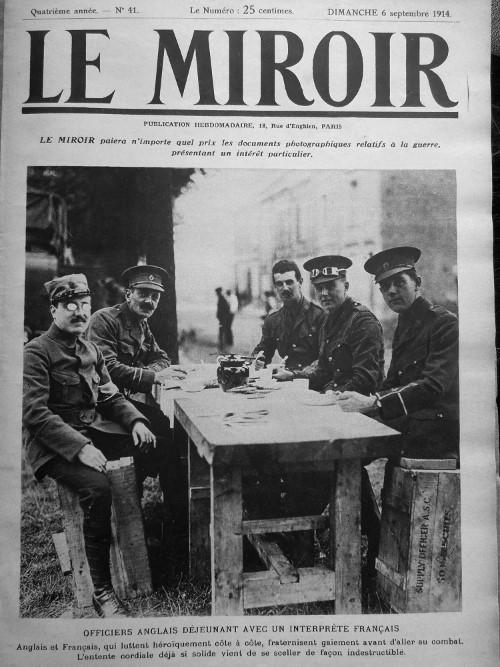
Illustration 1: Cover of the September 6th 1914 issue of Le Miroir, photograph of British officers drinking tea with their French interpreter (at the left) at the roadside in France, Photo: Franziska Heimburger
Dr Oliver Stein
Der Krieg als Reise: Deutsche Soldaten im Osmanischen Reich 1914-1918
The War as a Journey: German soldiers in the Ottoman Empire 1914-1918
Forschungskolloquium zur Neueren Geschichte
Freie Universität Berlin (Prof. Dr. Oliver Janz)
February 2, 2016 6-8 pm
Zusammenfassung:
Eine Reise in den Orient gehörte am Vorabend des Ersten Weltkrieges zu denjenigen Unternehmungen, die zwar viele ersehnten, die jedoch nur wenigen möglich waren. Die erzwungene Massenmobilität im global geführten Ersten Weltkrieg aber ermöglichte es Tausenden von Deutschen als Soldaten in die Gegend zu gelangen, die ihnen bereits durch ihre Jugendlektüre als vertraut erschien. In diesem Beitrag wird auf der Grundlage von Tagebüchern, Feldpostbriefen und Erinnerungen gezeigt, dass ungeachtet des Zwangscharakters, den der Kriegseinsatz für den Einzelnen hatte, das Reiseerleben die dominierende Rolle in der Wahrnehmung und Erinnerung der im Osmanischen Reich dienenden Soldaten einnahm. Damit unterschied sich die Kriegserfahrung dieser Soldaten grundlegend von derjenigen ihrer Kameraden an den europäischen Fronten. Auf keinem anderen Kriegsschauplatz war eine Verdrängung des Krieges und des auch dort allgegenwärtigen Leidens derart wirksam. Stattdessen wurden die Erfüllung von Sehnsüchten und das Gefühl von Freiheit zu den bestimmenden Merkmalen deutscher Kriegserfahrung im Osmanischen Reich. Letztlich ergab sich aus der Erfahrung des Krieges als Reise vielfach eine Erweiterung des Horizonts.
English Summary:
On the eve of the First World War, a trip to the Orient was among those undertakings that was desired by many, yet was possible only for a few. The forced mass mobilization in the globally-led First World War, however, enabled thousands of Germans to reach this far corner as soldiers - an area that already appeared familiar to them from their readings in their youth. Using diaries, war letters and memoirs as a basis, this lecture shows how the travel experience adopted a dominant role in the perception and memory of the Ottoman Empire for the deployed soldiers, despite the nature of their compulsory service. Thus, the war experience of these soldiers fundamentally differentiates itself from that of their comrades on the European fronts. In no other theater of war was the repression of war and its suffering so effective. Instead, the fulfillment of desires and the feeling of freedom became the particular characteristics of the German war experience in the Ottoman Empire. Finally, the experience of war as a journey often resulted in an expansion of soldiers' personal horizons.
Dr Mahon Murphy
CEGC Conference Lecture:
The British Military Occupation of Jerusalem 1917-1920: Soldiers as Tourists and Pilgrims?
Conference: Cultural Encounter during Global War, 1914-1918: Traces, Space, Legacies
King's College London and the German Historical Institute
January 21, 2016
Summary:
Dr. Murphy's main question dealt with how ordinary British soldiers perceive themselves and the supposedly occupied enemy population. The sources for this paper were mainly taken from soldiers’ diaries and memoirs and articles and pieces from the Trench newspaper, ‘The Palestine News’. He discussed the image of soldiers perception of themselves as something more than mere soldiers and the idea of Jerusalem as being much more of a familiar city to them than other more ‘exotic’ parts of the Ottoman Empire. The extension of fighting into Palestine during the First World War gave ordinary British soldiers the opportunity to be tourists/pilgrims in a place whose geography was already very familiar to them from the bible and crusader legends.
Samuel Krug, MA
CEGC Conference Lecture:
North Africans within the “Nachrichtenstelle für den Orient”: Between subjugation and anti-European propaganda – The Case of Abd al-Aziz Jawish
Conference: Cultural Encounter during Global War, 1914-1918: Traces, Space, Legacies
King's College London and the German Historical Institute
January 21 - 23, 2016
Summary:
By analyzing the case of the Egyptian Pan-Islamist and nationalist Abd al-Aziz Jawish (1872-1929), the paper aims to demonstrate the ambivalent interaction between the propaganda organization “Nachrichtenstelle für den Orient” (NfO) and its non-German employees. Although the NfO’s leadership tried to monitor and control Jawish, he did not cease to pursue his religious and political goals. Jawish even questioned Germany’s sincerity in supporting the Egyptian nationalist cause and insinuated an imperial agenda, which ultimately led to a break with the NfO and the German Foreign Office. Abd al-Aziz Jawish can be seen as an instructive example of the ambiguous allegiances of North Africans working for the NfO: On the one hand, they were paid for producing pro-German propaganda. On the other hand, they used the organization’s resources and network to promote their own cause, which in some cases was opposed to German interests, and to get in contact with other nationalists and/or Pan-Islamists from around the world. Therefore, the North African employees of the NfO were neither collaborators nor mere translators, but had their very own ideas and agendas in a hybrid political arrangement.
Dr Mahon Murphy
HERA Public Lecture:
The British Occupation of Jerusalem 1917-1920
Forschungskolloquium zur Neueren Geschichte
Freie Universität Berlin (Prof. Dr. Oliver Janz)
January 19, 2016 6-8 pm
Summary:
In Berlin Dr. Murphy discussed his project as a part of MWME and viewed the military occupation of Palestine and Jerusalem in particular from a cultural perspective, which rather than projected forward, looked back at how the military occupation of Jerusalem fit with the development of cultural encounters in the Levant in the preceding nineteenth century. General Edmund Allenby’s triumphant and ceremonial entry into Jerusalem in December 1917 was after all very much focused on the past rather than the future. As well as giving an overview of the project as he has been working on it thus far, he wished to focus in on how ordinary British soldiers encountered Jerusalem, and how these encounters were controlled.
Prof. Dr Jennifer Jenkins (University of Toronto)
Dr Heike Liebau and Larissa Schmid, M.A. (Zentrum Moderner Orient, Berlin)
HERA Public Lecture:
Anti-colonial Networks, Independence Committees and Germany's Global War
Forschungskolloquium zur Neueren Geschichte
Freie Universität Berlin (Prof. Dr. Oliver Janz)
December 15, 2015 6-8 pm
Summary:
This talk analyzed the central role played by the independence committees in Germany's 'program for revolution' (Aufwiegelung), a grand attempt to instigate popular insurrection and imperial unrest on a global scale. Despite the wartime reach and strategic importance of this program, one hundred years following the outbreak of the war much about it remains unknown. This is particularly true with regard to the relations between German agents and the local insurgents with whom they sought to partner. The talk adressed this absence and discussed in a comparative perspective the role of the Indian, Persian and Algerian-Tunisian committees and their transnational networks of actors. The authors showed that the German Foreign Office did not create the committees out of thin air. Rather, they originated from intellectual networks of anti-colonial intellectuals which predated the war. Organized and supported by the German Foreign Office, the committees operated both in an intelligence capacity (propaganda) and in a military sense. The three case studies presented in the talk showed in particular how members of the different committees came together through their propaganda work at the front lines and in their activities in the prisoner-of-war camps located outside of Berlin.
Launch of the MWME Online Exhibition
During a workshop in York on November 13, 2015, the MWME project launched the online exhibition, which can now be found on mwme.eu under the heading "Exhibition".
Gerhard Grüßhaber, M.A.
Ludwig-Maximilians-Universität München (Graduiertenschule für Ost- und Südosteuropastudien)
HERA Public Lecture:
Der 'deutsche Geist' in der osmanischen/türkischen Armee 1908-1938. Eine Transfergeschichte militärischen Denkens
Forschungskolloquium zur Neueren Geschichte
Freie Universität Berlin (Prof. Dr. Oliver Janz)
November 10, 2015 6-8 pm
Summary:
Im Zentrum des Dissertationsvorhabens stehen die Verbindungen von deutschem und osmanischem/ türkischem Militär zwischen der jungtürkischen Revolution und dem Tode Atatürks. Dabei werden sowohl die Tätigkeit der deutschen Instruktionsoffiziere im Osmanischen Reich/ der Türkei als auch die `Lehrjahre` osmanischer und türkischer Offiziere in Deutschland vor und nach dem Ersten Weltkrieg untersucht. Als Quellen für Inhalte und Praktiken des militärischen Wissenstransferprozesses zwischen diesen Personengruppen dienen archivalische Nachlässe, Militärzeitschriften, publizierte Erinnerungsliteratur und dienstliche Unterlagen aus beiden Ländern. Der „Deutsche Geist“ war Teil der nationalistischen Ideologie im wilhelminischen Deutschland vor 1914, dessen selektive Aneignung durch Offiziere der osmanischen Armee untersucht werden soll. Von jener Aneignung wurde die Republik Türkei nachhaltig geprägt. Es soll aber auch nachgewiesen werden, dass die deutschen Offiziere ebenfalls von ihrem (potentiellen) Verbündeten lernten.
English Summary:
The connections between the German and Ottoman/Turkish armies, from the revolution of the Young Turks to the death of Atatürk, form the focal point of this dissertation project. The activities of German military instructors in the Ottoman Empire/Turkey, as well as the “training years” of Ottoman and Turkish officers in Germany before and after World War I, will be investigated. Archival bequests, military periodicals, published memoirs and official documents from both countries serve as sources on the contents and practices of the military processes of knowledge transfer between these groups of people. Ottoman army officers’ selective adoption of the “German spirit”, part of the nationalistic ideology in Wilhelmine Germany before 1914, will be investigated. The Republic of Turkey was deeply shaped by this adoption. However, it will also be shown that the German officers, likewise, learnt from their (potential) ally.
Dr Paul Fox & Dr Fergus Robson
Bilateral seminar "Making War, Mapping Europe"
with two lectures:
Dr Paul Fox: "Severed Heads: The Spoils of War in the Egyptian Sudan"
Dr Fergus Robson: "Conquerors and Collectors: French Soldiers' Spoils of War in Italy and Egypt, 1796-1801"
October 29, 2015
at the TRIARC seminar room
Trinity College Dublin
- Homepage for Centre for War Studies, Trinity College Dublin
- Dr Paul Fox's Lecture - Full Text
Winter semester 2015/16
Research colloquium for the department of Modern History
Fachbereich Geschichts- und Kulturwissenschaften
Friedrich-Meinicke-Institut
Prof. Dr. Oliver Janz
at the Freie Universität Berlin
Koserstr. 20, 14195 Berlin
Room A.336
6-8 pm
Dr Paul Fox
A Privatised Sense of the Past Gone Public: Royal Flying Corps Photograph Albums and the Memory of Air Operations in Egypt
September 17, 2015
Workshop 'Colonialism, War & Photography'
King's College London
Dr Oliver Stein
German Scientists in Uniform and their Research in the Ottoman Landscape, 1914-1918
September 12, 2015
8th conference of the International Society for First World War Studies: 'Landscapes of the Great War: imagination, representation, experience'
Italian-German Historical Institute
FBK Trento and the University of Padua
Summary:
The landscape of the Ottoman Empire had been long before the First World War a focal point for western researchers of many different disciplines. While the outbreak of war interrupted the majority of research, diverse German military-initiated projects replaced them during the war.
This aspect of the Great War, which has been not yet been more closely inspected, is the topic of the planned talk. Using personal testimonials, military documents and printed sources, this talk will examine all different forms of scholarly analysis of the Ottoman region by members of the German military. Additionally under its purview, the talk will investigate the intention of the research, and will carve out its particularity under the conditions of war in the German-Ottoman alliance.
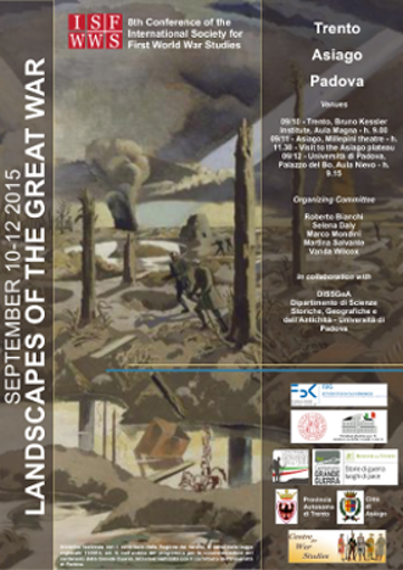
Dr Fergus Robson
The Soldiers of the Revolution as travellers, tourists and transmitters of tropes; the campaigns in Italy and Egypt as sites of cultural encounters
August 27, 2015
22nd International Congress of Historical Sciences
Shandong University
Jinan, China
Summary:
A quarter century after the Bicentenary, conventional cultural history can by no means be cast as a new approach, the idea of cultural encounters however, especially those between soldiers and foreign civilians is a new and fruitful field. All the more so when applied to the French Revolutionary army, one of the first truly national armies and also one of the first to move away from traditional recruitment and command structures. These specificities render the experiences of soldiers of the Revolution particularly rich when used to examine emerging notions of cultural distinctiveness and national identity. This paper is based on research conducted for the International Collaborative Research Project, Making War, Mapping Europe: Militarized Cultural Encounters 1792-1920, which aims to trace the impact of west European soldiers’ experiences on the evolution of national identity in France, Germany and England over the Long 19th Century. The project begins with the French military campaigns in Italy and Egypt as sites of cultural encounters between the new citizen soldiers of an as yet nascent nation and the people of two drastically different lands, both famed in antiquity with concomitant echoes in the 18th century French imagination. An innovative understanding of soldiers’ multiple roles when on campaign informs the idea of the ‘fighting man as tourist’ which is at the basis of the proposed paper. Leaving aside the adequately studied combat side and focussing instead on the travelling, sight-seeing, interactions, observations and adventures of these soldiers, as related through their memoirs and letters. The ways in which they gazed upon Italy and the Orient will be examined with a focus on the everyday and how this sharpened understandings of their own lived culture(s). Their views on food, dress, music, architecture and hygiene in these two contexts will be examined to illustrate how they went about creating and transmitting tropes which are still familiar and which in turn crystallized their conceptions of what it was to be French. The experience of this diversity and difference in turn contributed to making the soldiers’ own diversity seem less and contributed to a more (but far from completely) homogenous understanding of French national specificity, a process which continued well into the 19th century.
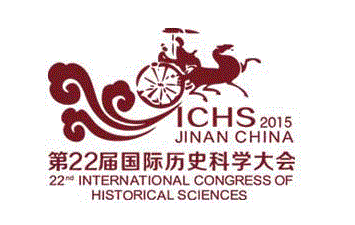
Dr Fergus Robson
Dressing Up and Dressing Down: French Soldiers' Visions of the "Other's" Attire
July 20, 2015
Conference Talking Textiles; The Importance of Cloth and Apparel
Trinity College Dublin
Trinity Long Room Hub
Conference Program
Summary:
The well documented obsessions with clothing in 18th century and Revolutionary France went beyond the salons and streets of Paris and the provinces, they were present in the army and not solely in the soldiers’ concern for their ragged shirts and collapsing boots. Attire constituted one of the principle means by which French soldiers mediated and understood the civilians they encountered while on campaign. This paper will examine the ways in the soldiers of the Army of Italy and the Expedition to Egypt formed their ideas of difference with reference to locals’ clothing. Fashion and tradition were represented in these soldiers’ accounts of their experiences, not merely as descriptive narratives but often as proto-ethnographic and culturally charged tools of categorisation, control and valorisation. Observations on the way Italian and Egyptian women, and less often, men, dressed helped them to navigate unfamiliar cultures and societies, informed the prejudices they developed and brought to the fore idealised understandings of femininity, both foreign and French. In doing so their conception of themselves as French men, and also of French women were both nuanced and reinforced through the prism of cultural difference. As such neither the vogue for togas and translucent gowns; nor the craze for cashmere shawls and theatric turbans tell the whole story of French cultural engagement with the dress of Italy and Egypt. The ways in which clothing was a form of communication, whether that was the power and dominance conveyed by the uniforms of an occupying army (which also turned the troops into easy targets for resentful civilians) or the insights into local society afforded by costume, both provide an oblique and revealing angle from which to view the experience and representation of militarised cultural encounters during the wars of the French Revolution.
Interdisciplinary conference on
Cultural Encounters during Global War, 1914-1918: Traces, Spaces, Legacies
Call for Papers
from the HERA partner project, 'Cultural Exchange in the time of Global Conflict' (CEGC)
21 - 23 January 2016
London, United Kingdom
King's College and the German Historical Institute
Professor Dr Sabine Mangold-Will (Bergische Universität Wuppertal)
Deutschland und die Türkei 1918-1933
A public lecture from the HERA Project "Making War, Mapping Europe"
July 7th, 2015 6-8 pm
at the Freie Universität Berlin
Koserstr. 20, 14195 Berlin
Room A.336
In her presentation, Sabine Mangold-Will will ask which motives were behind the continuation of Turko-German relations after their losses in the First World War. At the heart of the presentation will be a profile of the first Turkish ambassador to Germany, Kemaleddin Sami Pasha, and his wife, as well as insight into the operations of the German Veteran’s Association “Bund der Asienkämpfer.” On the one hand, she will show how Turkey served as a role model to Germany in its struggle against the Versailles Treaty and the political order of the democratic Weimar Republic. On the other hand, she will urge a detailed look at the segment of the Turkish elite that was affected by a conservative or “limited” modernism, believed to be a typically German phenomenon.
Workshop of the HERA project CEGC
Wünsdorf Excursion
June 25 - 27, 2015
Berlin
A visit on June 27th to the cemetery at Zehrendorf and the site of the former 'Halfmoon camp'
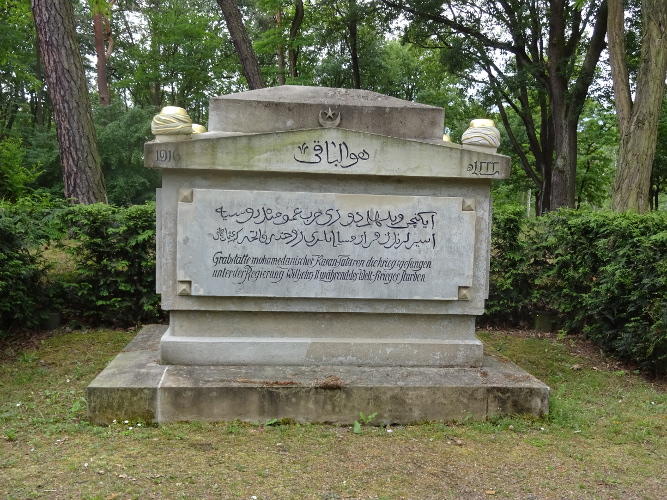
Photo: Oliver Stein
The 'Halfmoon camp' was a German prisoners of war camp near Berlin, in which about 30,000 muslim prisoners were interned. Being kept in the same accomodations was supposed to encourage ritual muslim practices. The first building constructed explicitly as a mosque in Germany was erected on the grounds of the 'Halfmoon camp'. The motivation for this preferential treatment stemmed from the German efforts to gain sympathy from the muslim world in order to strengthen the Dijahd against the Entente powers. Simultaneously, German ethnological studies were conducted in the camp. One of the research undertakings within the HERA project CEGC is investigating the 'Halfmoon camp'. Seen in the picture above is a monument erected during the First World War for the Tartars who died in 'Halfmoon camp'. The inscription reads: "Grave of Mahommedan Kasan-Tartar, who died imprisoned under the reign of Wilhelm II during the World War."
Dr Catriona Kennedy
The Women of Waterloo
July 23, 2015 12:30 pm
Lecture at the Army & Navy Club, London
Dr Paul Fox
A private sense of the past: flying officers’ photograph albums and the memory of air operations in Egypt and Palestine, 1915—18
June 6, 2015
Memory Symposium at the University of Greenwich, London
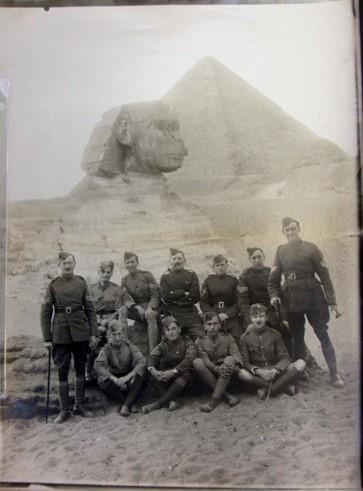
Courtesy of the Royal Air Force Museum
Dr Paul Fox
Military operations and the traveller in Egypt, 1882—1885
November 29, 2014
Conference War, Travel, Travel Writing
University of East Anglia, Norwich
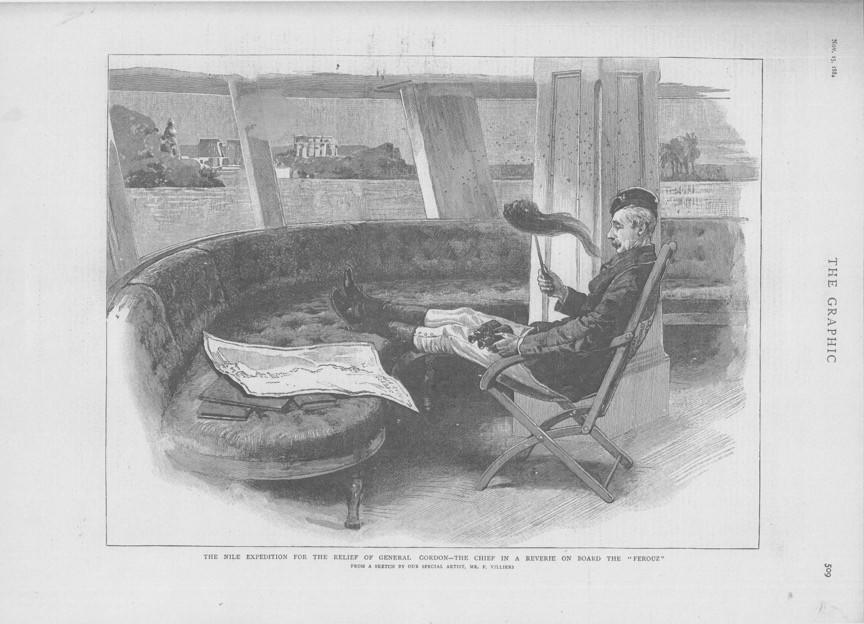
Courtesy of Kensington and Chelsea Public Libraries
Dr James S Leighton
1812 and German views of the East
November 29, 2014
Conference War, Travel, Travel Writing